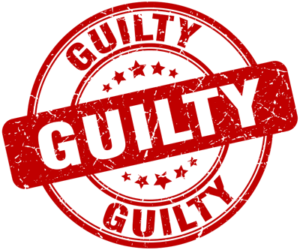Gambling Commission Fines And Law Enforcement In The UK – Who Holds Betting Companies Responsible?
 For the average punter, there is so much that goes on behind the scenes that you simply might never think about. An obvious example of this is the way that bookmakers come up with the odds for events. You might look at a match between a team that’s gone unbeaten all season and one that has lost every game and realise that it’s pretty easy to decide which side should be the favourite. Yet how do bookies decide that the favourites are 100/54, say, or that the other side are 25/1? There are any number of things that go into the decision making process, including the use of computers with complicated algorithms that look at all of the variables. The point, of course, isn’t to understand how they do it, rather to point out that it’s something that goes on that the vast majority of us don’t even think about.
For the average punter, there is so much that goes on behind the scenes that you simply might never think about. An obvious example of this is the way that bookmakers come up with the odds for events. You might look at a match between a team that’s gone unbeaten all season and one that has lost every game and realise that it’s pretty easy to decide which side should be the favourite. Yet how do bookies decide that the favourites are 100/54, say, or that the other side are 25/1? There are any number of things that go into the decision making process, including the use of computers with complicated algorithms that look at all of the variables. The point, of course, isn’t to understand how they do it, rather to point out that it’s something that goes on that the vast majority of us don’t even think about.
Another thing that comes into the same sort of bracket is the idea of gambling companies having to obey certain rules and regulations. Where do they come from? Who enforces them? If companies break them, what happens? Thankfully, most of us never really need to know the answer to those questions. Unless you’re heavily invested monetarily, emotionally or intellectually in the world of online betting, the way that the industry is controlled is essentially irrelevant to you so it’s understandable that you might not have asked yourself the question. Yet there could come a point when you need to look to the industry’s governing body, the Gambling Commission, and it’ll be good to know whether or not anything in the industry will actually change if that happens. This page should help to answer some of those questions.
What Is The Gambling Commission Responsible For?
 If we’re going to look at how the Gambling Commission works when they fine companies and what happens next, it’s important to first discuss what the body is responsible for. The GC was set up as part of the 2005 Gambling Act, the Gambling Commission is responsible for the regulation of the commercial gambling sector. This includes working with the licensing authorities to ensure that companies are allowed to operate within Great Britain and do so in a socially responsible manner. The Commission is also responsible for regulating the National Lottery, thanks to the National Lottery etc. Act of 1993.
If we’re going to look at how the Gambling Commission works when they fine companies and what happens next, it’s important to first discuss what the body is responsible for. The GC was set up as part of the 2005 Gambling Act, the Gambling Commission is responsible for the regulation of the commercial gambling sector. This includes working with the licensing authorities to ensure that companies are allowed to operate within Great Britain and do so in a socially responsible manner. The Commission is also responsible for regulating the National Lottery, thanks to the National Lottery etc. Act of 1993.
That’s the short answer. The slightly longer answer is that they ensure that gambling companies operate within the confines of certain licensing objectives. That includes the likes of stopping gambling from having a link to crime and disorder, such as being used to launder money. They also do their best to protect children and vulnerable people in society, as well as ensuring that all gambling that companies allow is done in a transparent manner. In addition, the introduction of the 2014 Gambling (Licensing and Advertising) Act means that companies that not only wish to operate in the UK but even just to advertise to British audiences need to get a licence from the Gambling Commission.
In terms of the types of operators and companies that come under the jurisdiction of the Gambling Commission, it’s actually more wide-ranging than you might imagine. Whilst obvious examples include the likes of casinos, bookmakers, lottery providers and bingo halls, the less obvious ones are arcades, anywhere with gaming machines and any company that produces or works with gambling software. The ‘bookmakers’ label, as with the ‘bingo’ one, also covers companies that operate predominantly online or in any manner that requires them to have a remote operating licence. Obviously the fact that the Commission is UK-based is the reason that they only deal with companies that wish to operate in or advertise to UK consumers.
Who Is In Charge Of The Gambling Commission?
Whilst the Gambling Commission is classed as part of the Department for Digital, Culture, Media and Sport, the Commission itself is actually an independent and non-departmental public body.

There are around two-hundred and fifty people that work for the GC, predominantly based in Birmingham where there’s an office. The Commission is funded by the fees outlined by the DCMS and paid by the organisations and companies that wish to receive a licence to operate. That includes a National Lottery Distribution Fund grant, given that it’s also responsible for the regulation of the National Lottery, as mentioned before.
What Can Gambling Fines Be Issued For?
 In short, the Gambling Commission is responsible for ensuring that companies obey the requirements that are imposed by the numerous different Government acts that have been passed over the years. If the various gambling firms and companies have not obeyed some form of requirement or another then the Gambling Commission can issue them with a fine and warn them about future conduct. Fining isn’t the only option open to the Commission, of course. What they refer to as ‘enhanced compliance procedures’ are also possible, to say nothing of the ability to think about criminal investigations and the instigating of criminal proceedings if necessary.
In short, the Gambling Commission is responsible for ensuring that companies obey the requirements that are imposed by the numerous different Government acts that have been passed over the years. If the various gambling firms and companies have not obeyed some form of requirement or another then the Gambling Commission can issue them with a fine and warn them about future conduct. Fining isn’t the only option open to the Commission, of course. What they refer to as ‘enhanced compliance procedures’ are also possible, to say nothing of the ability to think about criminal investigations and the instigating of criminal proceedings if necessary.
One of the most important things for the Gambling Commission is to maintain are a good relationship with the people and companies that it issues licences to. That’s why they always try to operate in a fair manner and issue fines that are proportionate to the issue. Their decisions are aimed at altering the future behaviour of any operator, as well as to deter others from veering away from the straight and narrow as far as the licence rules and regulations are concerned. They also ensure that no one gains financially or benefits in any other way thanks to non-compliance, including the possibility of remedying the harm that has been brought about as a cause of any non-compliance.

The Gambling Commission itself explains how things work and the crucial thing is, to quote their own words, that a financial penalty ‘may only be imposed where the Commission thinks that a condition of a licence has been breached’. The licensee will be told in writing about the penalty that is being issued to them as well as the reasons for it, giving them an opportunity to make representations to the Commission if the licensee thinks doing so will make any difference. Normally, though, companies and people that have breached their licence know that they’ve done it and are happy to accept the fine if it is, as promised, proportionate to what they’ve done wrong.
Examples Of Gambling Commission Fines
It’s one thing to talk in the abstract about the sorts of reasons that the Gambling Commission might impose a fine on a licensee, but it’s much easier to talk about specific occasions that this has happened in the past. Here’s a look at some of the more high-profile examples.
32Red Fined £2 Million
 In June 2018 32Red, now under the Kindred umbrella, came into the spotlight when the GC issued a £2.0 million penalty for failing to protect a vulnerable customer. This fine was levied for the actions of the company to just one player but it was quite a severe case.
In June 2018 32Red, now under the Kindred umbrella, came into the spotlight when the GC issued a £2.0 million penalty for failing to protect a vulnerable customer. This fine was levied for the actions of the company to just one player but it was quite a severe case.
32Red allowed the customer to deposit over £750,000 without once carrying out money laundering or social responsibility checks. Despite the customer immediately gambling away a £1M win as part of 22 incidents which indicated problem gambling the company did nothing. In fact they offered the user further bonuses to encourage more play.
The £2,000,000 payment included giving back the £709,000 profit made, a £1.3 million fine and paying the costs of the case.
William Hill Fined £6.2 Million
 In February of 2018 the bookmaker William Hill was fined £6.2 million by the Gambling Commission for what was referred to as ‘lax controls’. That was because around ten customers managed to make deposits into their William Hill accounts of money that had been linked to criminal offences, with the bookie gaining £1.2 million as a result.
In February of 2018 the bookmaker William Hill was fined £6.2 million by the Gambling Commission for what was referred to as ‘lax controls’. That was because around ten customers managed to make deposits into their William Hill accounts of money that had been linked to criminal offences, with the bookie gaining £1.2 million as a result.
It was felt by the Commission that William Hill hadn’t done enough to find out whether or not those making the deposits were problem gamblers or where the money had come from. £5 million of the fine was for ‘breaching regulations’, whilst the other £1.2 million was the company ‘divesting themselves’ of the profit that they made.
888 Fined £7.8 Million
 In August of 2017 the Gambling Commission confirmed that it had fined 888, the online gambling company, £7.8 million for ‘failing to protect vulnerable customers’. That was because around seven-thousand people had voted to self-exclude, feeling that they had a problem with their gambling, yet were still able to access their accounts. Those customers were able to deposit up to £3.5 million in total into their accounts and keep gambling for more than a year. There was also an incident with an individual customer who 888 should’ve identified had a problem and helped. Instead they were able to place more than £1.3 million worth of bets, including money that they’d stolen form their employer.
In August of 2017 the Gambling Commission confirmed that it had fined 888, the online gambling company, £7.8 million for ‘failing to protect vulnerable customers’. That was because around seven-thousand people had voted to self-exclude, feeling that they had a problem with their gambling, yet were still able to access their accounts. Those customers were able to deposit up to £3.5 million in total into their accounts and keep gambling for more than a year. There was also an incident with an individual customer who 888 should’ve identified had a problem and helped. Instead they were able to place more than £1.3 million worth of bets, including money that they’d stolen form their employer.
Interestingly, Sky Bet were fined around £1 million in March of the following year for pretty much the same offence. More than seven-hundred customers were still able to access their accounts in spite of the fact that they had self-excluded, with around fifty-thousand other customers still receiving marketing information despite having also self-excluded.
Gala Interactive Fined £2.3 Million
 It’s not just bookmakers that can be fined by the Gambling Commission, of course. In November of 2017 Gala Interactive, the parent company of Gala Bingo, was fined £2.3 million for failing to protect consumers. Two customers were allowed to gamble and lose a total of about £1.3 million of money that they had stolen, without Gala stepping in to stop them. £1.3 million was paid to the victims of the two gamblers, with another £1 million being put towards research in to the causes of problem gambling.
It’s not just bookmakers that can be fined by the Gambling Commission, of course. In November of 2017 Gala Interactive, the parent company of Gala Bingo, was fined £2.3 million for failing to protect consumers. Two customers were allowed to gamble and lose a total of about £1.3 million of money that they had stolen, without Gala stepping in to stop them. £1.3 million was paid to the victims of the two gamblers, with another £1 million being put towards research in to the causes of problem gambling.
What made matters worse for Gala was that they had been pulled up by the Commission for similar failings at an earlier date, promising to identify problem customers quicker at the exact same time that these two customers were having problems.
Do Gambling Fines Work?
 A fair question might well be about whether or not the fines and penalties imposed by the Gambling Commission actually work. It’s a difficult question to answer, of course, given that we don’t know how much goes on behind the scenes at various bookmakers to ensure that they’re adhering to the rules set out in the licensing agreement. On the one hand, it’s not worth it for major bookmakers to push the Gambling Commission too far in terms of breaking the rules, considering that they could have their licence taken away from them. On the other hand, there is a difference between actively breaking the rules and ‘turning a blind eye’ if you think something that breaches the rules might be taking place.
A fair question might well be about whether or not the fines and penalties imposed by the Gambling Commission actually work. It’s a difficult question to answer, of course, given that we don’t know how much goes on behind the scenes at various bookmakers to ensure that they’re adhering to the rules set out in the licensing agreement. On the one hand, it’s not worth it for major bookmakers to push the Gambling Commission too far in terms of breaking the rules, considering that they could have their licence taken away from them. On the other hand, there is a difference between actively breaking the rules and ‘turning a blind eye’ if you think something that breaches the rules might be taking place.
The reality is that companies will need to weigh up the pros and cons of each situation. If they had, for example, ten customers that seemed to be gambling with stolen money and eight of those cases were discovered by the Gambling Commission, does the money that they make from the two that aren’t discovered make it worth while? We’d all like to think that the companies will be honest and the more reputable ones out there will be. Some, however, might push their luck if they think the potential payoff is worthwhile. Such an example can be found in the way that GVC Holdings were fined £350,000 for breaching the rules on misleading adverts, which was something that they did on numerous occasions before being discovered and fined accordingly.



